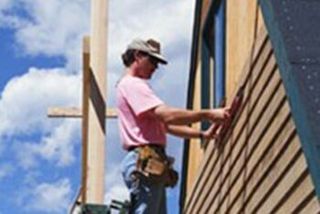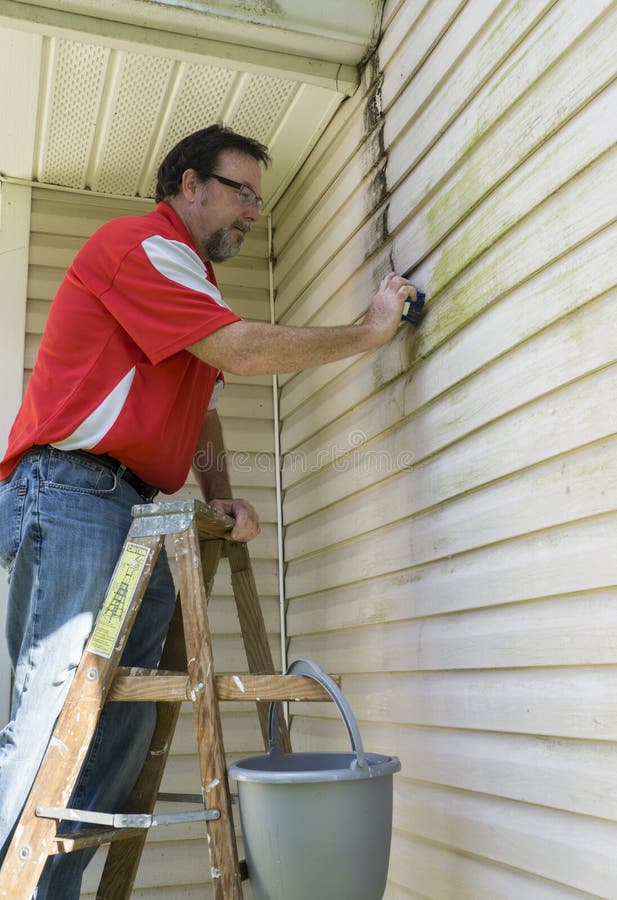Morris Siding Contractor Committed to Excellence in Every Project
Morris Siding Contractor Committed to Excellence in Every Project
Blog Article
The Important Guide to the Numerous Sorts Of Siding and Their One-of-a-kind Advantages
In the world of home improvement, selecting the right exterior siding is a critical decision that influences both aesthetic appeal and functional efficiency. The variety of products offered, such as timber, vinyl, fiber cement, metal, and block, each offer one-of-a-kind advantages that deal with various demands and choices. Comprehending these differences can dramatically improve the long life and value of a residential or commercial property - morris siding contractor. Nonetheless, with so many options to take into consideration, which exterior siding material really attracts attention for your details task? Discovering these choices can lead to informed decisions that straighten with both design and functionality.
Timber Siding
Wood exterior siding, a preferred selection for residential exteriors, uses an ageless visual that incorporates all-natural beauty with architectural honesty. This house siding product is available in numerous designs, consisting of clapboard, shingles, and board-and-batten, allowing property owners to tailor their appearance to match their layout preferences. Timber siding is usually crafted from long lasting types such as cedar, redwood, or want, which are known for their resilience and ability to endure environmental stress factors.
Among the main benefits of timber exterior siding is its exceptional insulation homes, which can contribute to power effectiveness and reduced heating expenses. In addition, timber siding is eco-friendly, making it an eco-friendly choice when sourced sustainably. Routine upkeep, including paint or discoloration, can prolong its life expectancy and enhance its look, allowing property owners to preserve the all-natural appeal of the wood.
Nonetheless, prospective disadvantages include susceptibility to bugs, rot, and weather condition damage, requiring appropriate treatment and maintenance - morris siding contractor. Regardless of these problems, when effectively cared for, timber exterior siding can offer a lovely and sturdy service that enhances the personality of a home while offering a warm, welcoming ambience

Vinyl House Siding
Vinyl home siding has emerged as a leading selection for property owners looking for a low-maintenance exterior alternative that integrates longevity and affordability. This versatile material is crafted from polyvinyl chloride (PVC), making it resistant to numerous weather, including moisture and UV rays. As an outcome, plastic exterior siding does not warp, rot, or discolor, making certain lasting visual charm.
Among the main advantages of vinyl home siding is its considerable array of designs and shades, allowing homeowners to achieve the desired appearance for their residential property without the demand for regular repainting. Additionally, plastic exterior siding is simple to set up, which can substantially reduce labor costs during building or restoration tasks.
Plastic home siding also contributes to energy effectiveness. Many choices feature insulation backing, which enhances thermal performance, aiding to preserve comfortable indoor temperature levels and potentially reducing energy expenses. Additionally, its smooth surface area helps with very easy cleansing, needing just regular cleaning with a garden hose pipe to remove dust and particles.
Fiber Cement Exterior Siding
Fiber concrete siding has actually gained grip amongst building contractors and property owners alike because of its remarkable combination of durability and aesthetic adaptability. Composed of a combination of cellulose, sand, and cement fibers, this home siding choice is engineered to stand up to severe weather condition conditions, including high winds, hefty rainfall, and temperature level fluctuations, making it a durable choice for residential exteriors.

One of the main benefits of fiber concrete house siding is its resistance to parasites, such as termites, and its non-combustible nature, offering boosted fire safety and security. morris siding contractor. Additionally, it is offered in a wide variety of structures, styles, and colors, enabling home owners to achieve their wanted visual without giving up performance
An additional benefit is its low maintenance needs; fiber cement house siding commonly calls for paint or staining every 5-10 years, which is less regular than various other materials. Additionally, its durability adds to a reduced general price of possession, as it decreases the need for frequent repairs or replacements.
Inevitably, fiber cement exterior siding stands for an excellent investment for those seeking a resistant, attractive, and versatile outside option, combining both form and function to enhance the home's aesthetic appeal.
Steel House Siding
The appeal of metal exterior siding exists in its durable resilience and modern aesthetic allure, making it a favored option for modern architecture. Offered in materials such as light weight aluminum and steel, steel house siding supplies a range of shades and surfaces, enabling property owners to attain a customized appearance that complements their design vision.

Power efficiency is another considerable benefit, as lots of steel home siding products are created with insulation choices that help manage indoor temperatures. This can cause minimized power expenses over time. In addition, steel siding is usually recyclable, making it an eco friendly option for sustainability-minded house owners.
The installment process for steel siding can be relatively uncomplicated, resulting in a quicker turn-around time for construction jobs. In general, metal exterior siding integrates functionality and design, making it a practical choice for you could try here those seeking a enduring and visually appealing outside finish.
Block and Rock Exterior Siding
Brick and rock siding attracts attention as an ageless choice that enhances the aesthetic appeal of any type of home. Understood for their sturdiness and low maintenance, these products supply a remarkable roi while raising the building's visual charm. Available in numerous colors, textures, and patterns, brick and rock can be tailored to suit diverse building styles, from typical to modern-day.
One of the primary advantages of brick and rock siding is their energy effectiveness. Both products have natural shielding residential properties that assist try this website regulate interior temperature levels, possibly decreasing cooling and heating costs. Additionally, they supply remarkable fire resistance compared to other siding alternatives, adding to enhanced security.
One more advantage is their longevity. Brick and rock can last for years, usually requiring marginal maintenance beyond occasional cleansing. Unlike timber house siding, they are unsusceptible insects and rot, making sure a durable exterior that stands up to the components.
Final Thought
In recap, the option of siding dramatically impacts a home's visual charm, energy performance, and maintenance needs. Each type of siding-- whether timber, plastic, fiber steel, cement, or brick and rock-- offers special advantages tailored to different homeowner choices and environmental conditions.
One of the key benefits of timber house siding is its outstanding insulation residential properties, which can add to energy performance and reduced heating prices. In addition, timber siding is biodegradable, making it an ecologically friendly choice when sourced sustainably.One of the key advantages of metal siding is its resistance to numerous ecological aspects.Energy effectiveness is one more substantial advantage, as several metal a knockout post house siding products are developed with insulation choices that help regulate indoor temperatures. Each type of siding-- whether wood, vinyl, fiber steel, concrete, or brick and rock-- supplies distinct advantages customized to various house owner preferences and environmental problems.
Report this page